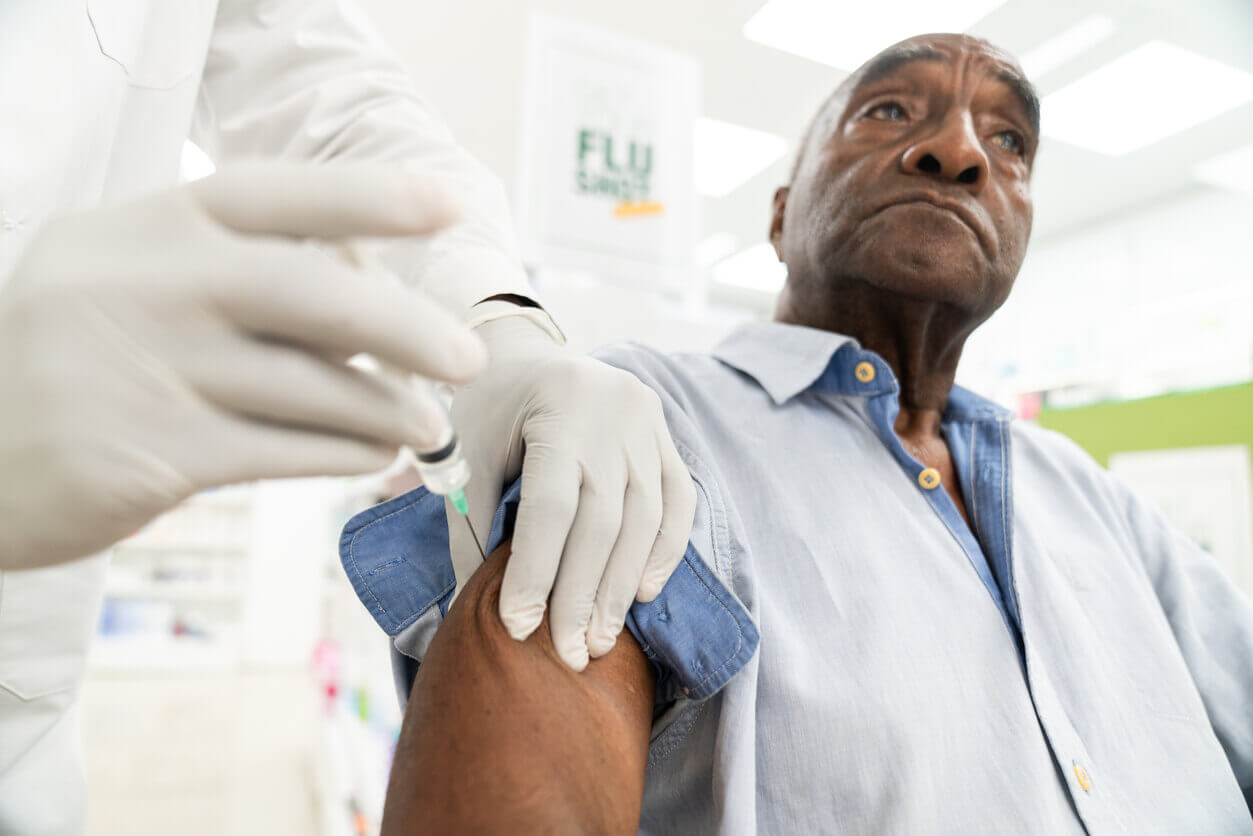
Winter is a time when flu season often peaks, making it the most crucial time for seniors to focus on protecting themselves from the flu. For older adults, the flu can pose serious health risks, leading to complications like pneumonia, hospitalization, or even life-threatening conditions. This is why getting a flu vaccine is so essential for seniors during the winter months.
This blog will guide you on why flu vaccines for seniors are so important, how they work, and what steps you can take to stay healthy this flu season.
Why Are Seniors More at Risk?
Older adults, particularly those ages 65 and above, are more vulnerable to complications from the flu. This is because the immune system weakens with age.
When the immune system is no longer as strong, it becomes harder for the body to fight off infections like the flu. Health conditions common among seniors, such as diabetes, asthma, or heart disease, can further increase risks.
Key Facts About Senior Flu Risks
Here are some key facts about seniors’ risk for contracting the flu virus.
- Hospitalization: According to the Centers for Disease Control and Prevention (CDC), seniors account for the majority of flu-related hospitalizations each year.
- Complications: The flu can lead to complications such as pneumonia, bronchitis, and worsening of existing chronic illnesses.
- Mortality: Almost 75%-85% of flu-related deaths occur in adults over 65 years old, as stated by the CDC.
How Does the Flu Vaccine Protect Seniors?
The flu vaccine works by teaching your immune system how to recognize and fight the influenza virus. Once vaccinated, your body produces antibodies that can defend against infection.
Seniors often benefit from vaccines tailored to their needs, which are known as high-dose or adjuvanted flu vaccines. These vaccines are designed to trigger a stronger immune response.
Here are the key benefits of the flu vaccine for seniors:
Reduced Risk of Severe Illness
Vaccinated seniors are at a lower risk of developing serious health complications if they contract the flu. For example, studies have shown that elderly individuals who receive the flu vaccine are less likely to suffer from pneumonia, which is a serious lung infection that can occur as a complication of the flu.
This is because the vaccine helps the body build immunity against the virus, making it easier to fight off infections.
Lower Rates of Hospitalization
The flu vaccine plays a crucial role in reducing the number of hospital visits caused by flu-related complications.
When seniors get vaccinated, their chances of experiencing severe symptoms that require hospitalization, such as dehydration or worsening of chronic medical conditions, are significantly reduced. This helps them stay healthier and avoid the stress and costs associated with hospital stays.
Community Immunity
Vaccination not only protects the individual receiving the vaccine but also contributes to the health of the community as a whole. When seniors get vaccinated, they reduce the risk of spreading the flu virus to others, including their family members and friends.
This is especially important for protecting people with weakened immune systems, such as young children and those with certain medical conditions, who might be more vulnerable to severe illness from the flu. By participating in vaccination, seniors help create a safer environment for everyone around them.
It is important to remember that flu viruses change. This is why getting an annual flu shot is the best way to stay protected.
Additional Steps to Protect Your Health This Flu Season
Here are some additional steps that you can take during the winter season to protect yourself from the flu.
Wash Your Hands Regularly
Use soap and water or hand sanitizer to kill germs. This simple habit can reduce your chances of getting sick.
Avoid Crowded Spaces
Try to stay away from places with large gatherings, especially during flu outbreaks.
Maintain a Balanced Diet
Eating nutrient-rich foods, such as fruits, vegetables, and lean proteins, strengthens your immune system.
Stay Active
Light exercises like walking can improve your health and boost your body’s defenses against illnesses.
Stay Hydrated
Drinking enough water can prevent dehydration, which may worsen flu symptoms if you get sick.
Consult Your Doctor About Any Symptoms
If you feel unwell or suspect you may have flu symptoms, contact your doctor immediately for advice.
Flu Vaccine for Seniors in Orlando, FL
At Premier Medical Group, we understand the unique healthcare needs of seniors, especially during flu season. With over 90 locations across Florida, we are committed to providing personalized care to seniors and families.
From same-day appointments to expert guidance on preventative services like flu vaccinations, we strive to make healthcare simple and accessible.
To learn more about flu vaccines for seniors or set up a consultation with us, call today at (407) 735-2114 or request an appointment using our form. We look forward to serving you!
